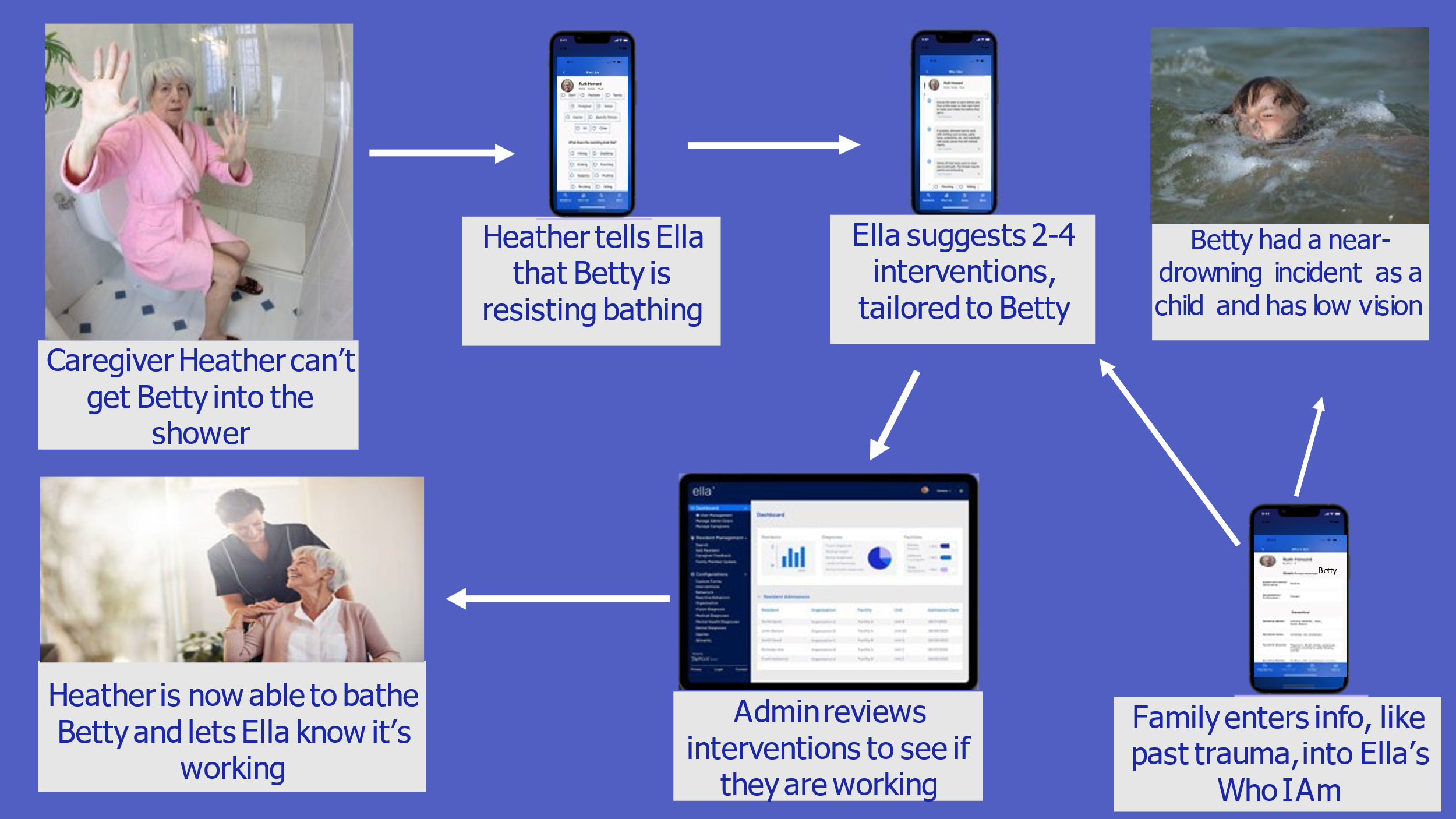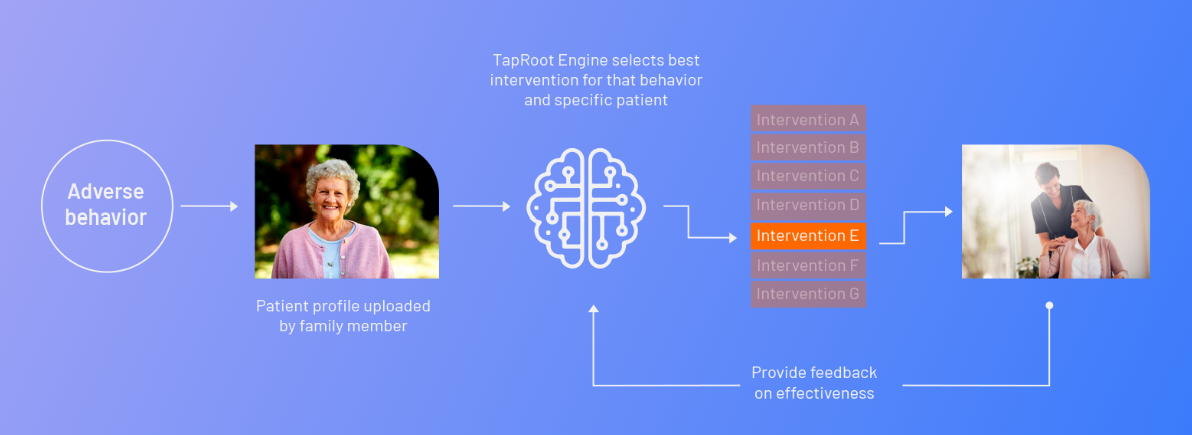How Ella Works
Ella combines a personalized behavioral approach with AI technology
Person-centered interventions and approaches help caregivers prevent and reduce adverse behavioral reactions
Our clinical team has, collectively, more than 60 years of behavioral and dementia care expertise. Our success is rooted in the belief that adverse behavioral reactions (refusing meals, resisting showers, etc.) stem from unmet needs combined with ineffective caregiver approaches. Ella’s philosophy is to scale person-centered care by applying technology in very innovative ways. Today, with the help of AI, this method can be widely disseminated, reducing costs and reaching millions of people with the same personalized approach.
90%
of dementia patients present adverse behavioral reactions
Adverse behaviors diminish patients’ quality of life
These behavioral episodes are the key drivers of caregiver burden
Benefits of Behavioral Interventions
- Fewer adverse behavioral reactions
- Reduction in psychotropic medications
- Less sedation = decrease in fall risk
- Fewer hospitalizations

AI-Powered
Artificial Intelligence (AI) is filling an existing data gap between observed behaviors, interventions, and outcomes in the dementia care space.
Ella’s AI engine analyzes multiple data points to suggest the best approach. We are using AI and machine learning to provide extensible, scalable, and augmented capacity for caregivers to support individuals living with dementia.


The Ella platform supports caregivers with a smartphone-based system that provides person-centered care appraoches for behavioral reactions. ‘Who I Am’ personal profiles enable on-demand, person-centered care.
Real-time delivery of optimal suggested interventions to a smartphone-based app to speed execution and delivery.
Curated list of a library of interventions per adverse behavior, prepared by an expert clinical therapist.
Fully integrated training and patient management system to facilitate additional caregiver training and support efficient care management between different caregivers at shift changes.
Machine learning centered around a neural network predictor for behavioral interventions—tailored to specific patients— that evolve over time.

Patent Pending Filed Application: # 63/000,625 System and Method for Generating Curated Interventions in Response to Patient Behavior.
HIPAA compliant We protect sensitive patient data information. We have physical, network, and process security measures in place and follow them to ensure HIPAA Compliance.
Scalable and accessible Ella is a cloud-based platform and our mobile app version operates on IOS and Android.
“Alzheimer’s is a triple threat unlike any other disease — with soaring prevalence, lack of effective treatment and enormous costs.”
Alzheimer’s Association
Until a cure is found caregivers need tools to manage patients. TapRoot’s non-pharmaceutical approaches can help. Here some reference studies that explain how behavioral interventions deescalate adverse behaviors:
“An individualised, non-pharmacological treatment strategy associated with an improvement in neuropsychiatric symptoms in a man with dementia living at home.” Carter, M. M. L., Wei, A. & Li, X. BMJ Case Rep. 12, 229048 (2019).
“Nonpharmacological interventions to reduce behavioral and psychological symptoms of dementia: A systematic review.” Oliveira, A. M. De et al. Biomed Res. Int. 2015, 218980 (2015).
“Evidence-Based Non Pharmacological Practices to Address Behavioral and Psychological Symptoms of Dementia.” Scales, K, Zimmerman, S. & Miller, S.J. Gerontologist, Vol. 58, No. S1, S88–S102 doi:10.1093/geront/gnx167 (2018).
Want to improve care for your dementia residents/clients?
